 The purpose of this survey was to develop suggestions for actions that might foster closer communication between mainstream (MM) and CAM practitioners. Continue reading Looking for common ground between CAM and mainstream medicine
The purpose of this survey was to develop suggestions for actions that might foster closer communication between mainstream (MM) and CAM practitioners. Continue reading Looking for common ground between CAM and mainstream medicine
Monthly Archives: April 2007
Gambian president’s claim of herbal AIDS cure is false
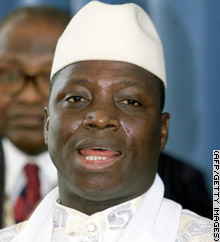 It took about 2 weeks for this story to unravel. It’s true, Professor Souleymane Mboup of the University of Dakar in Senegal says, “In some samples viral load measures were below the level detectable by the tests.”
It took about 2 weeks for this story to unravel. It’s true, Professor Souleymane Mboup of the University of Dakar in Senegal says, “In some samples viral load measures were below the level detectable by the tests.”
However? Continue reading Gambian president’s claim of herbal AIDS cure is false
Bio mapping: A complementary way to reduce stress
![]() More technology to our rescue.
More technology to our rescue.
Bio Mapping is a research project that explores new ways for people to gather and use information about their bodies. Continue reading Bio mapping: A complementary way to reduce stress
Should the FDA have greater oversight of supplements?
 Bob Unruh writing on WorldNetDaily sounds the alarm over proposed regulatory changes that would give the FDA oversight of functional foods. Continue reading Should the FDA have greater oversight of supplements?
Bob Unruh writing on WorldNetDaily sounds the alarm over proposed regulatory changes that would give the FDA oversight of functional foods. Continue reading Should the FDA have greater oversight of supplements?
Update: Acupuncture and in vitro fertilization
 Here are highlights from the 2006 conference of the American Society for Reproductive Medicine in New Orleans.
Here are highlights from the 2006 conference of the American Society for Reproductive Medicine in New Orleans.
Writing in Medscape, Dr. Peter Kovacs from the Kaali Institute IVF Center in Budapest and the Albert Einstein College of Medicine in New York says, “Increasing numbers of patients ask about and/or turn to alternative medical solutions when traditional medicine fails.”
With respect to 2 studies of acupuncture?
Continue reading Update: Acupuncture and in vitro fertilization
Consumer alert: Eden Herbal Formulations Serenity Pills II
 Health Canada advises consumers not to use this product. It contains the undeclared prescription drug estazolam (Prosom), which can be habit-forming when used for as little as a few months. Continue reading Consumer alert: Eden Herbal Formulations Serenity Pills II
Health Canada advises consumers not to use this product. It contains the undeclared prescription drug estazolam (Prosom), which can be habit-forming when used for as little as a few months. Continue reading Consumer alert: Eden Herbal Formulations Serenity Pills II
Using electronic media to improve patient care
 At the Primhe conference at the University of Warwick, UK, iPLATO announced the launch of a mobile stress service. “Triggered through a web-interface or through text message it offers users top 20 tips on dealing with stress.”
At the Primhe conference at the University of Warwick, UK, iPLATO announced the launch of a mobile stress service. “Triggered through a web-interface or through text message it offers users top 20 tips on dealing with stress.”
iPATO is a UK company that develops programs that use cell phones and the Internet to complement healthcare — among other industries. Continue reading Using electronic media to improve patient care
Marshmallow (Althaea officinalis): Where’s the data?
![]() Dr. Cathy Wong is a licensed naturopath and certified nutritionist. She writes an upbeat column on the About website.
Dr. Cathy Wong is a licensed naturopath and certified nutritionist. She writes an upbeat column on the About website.
In one article she discusses Althaea for cough and sore throat, ulcers, and irritated skin. Continue reading Marshmallow (Althaea officinalis): Where’s the data?
Yoga for health
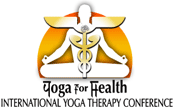 According to their website, the International Yoga Therapy Conference “is a forum that explores the specific and profound ways in which yoga can aid in maintaining good health or recovery from illness.”
According to their website, the International Yoga Therapy Conference “is a forum that explores the specific and profound ways in which yoga can aid in maintaining good health or recovery from illness.”
This year’s meeting will be held at the Peacock Gap Country Club in San Rafael, California (about 30 minutes north of San Francisco) on May 18 to 20. Continue reading Yoga for health
Time to define back pain
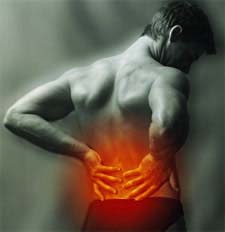 Dr. Jason Jones is the Clinic Director of SpinaCare. In an earlier post he commented that the validity of the outcomes at the end of clinical research depends on asking the appropriate question at the start.
Dr. Jason Jones is the Clinic Director of SpinaCare. In an earlier post he commented that the validity of the outcomes at the end of clinical research depends on asking the appropriate question at the start.
Case in point: Back pain. Continue reading Time to define back pain
Legalizing marijuana: Does it matter?
 An article by the Canadian AIDS Society says not enough is being done to get Canadians to use legal marijuana.
An article by the Canadian AIDS Society says not enough is being done to get Canadians to use legal marijuana.
Apparently legalizing a drug with no credible scientific evidence for its use as primary or secondary treatment for anything is not enough. Continue reading Legalizing marijuana: Does it matter?
Trevor Howard: The world’s first CAM allopathic practitioner?
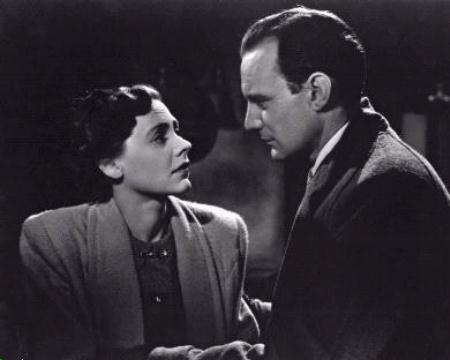 Written by Noel Coward, Brief Encounter is an enjoyable (understated) 60-year-old movie that asks the question, “Is it possible to be faithfully committed to one person, feel inexplicably drawn to love another, yet not be adulterous?”
Written by Noel Coward, Brief Encounter is an enjoyable (understated) 60-year-old movie that asks the question, “Is it possible to be faithfully committed to one person, feel inexplicably drawn to love another, yet not be adulterous?”
What’s this got to do with CAM? Continue reading Trevor Howard: The world’s first CAM allopathic practitioner?
Sharing epilepsy treatment experiences
 Belinda at The Patient Connection is seeking opinions and experiences from people with epilepsy and their parents/caregivers. Topics include medication, ketogenic diets, and surgery.
Belinda at The Patient Connection is seeking opinions and experiences from people with epilepsy and their parents/caregivers. Topics include medication, ketogenic diets, and surgery.
From what I can tell, this is a company that specializes in conducting focus groups and opinion research for their clients. Ultimately, their work complements clinical trial results. Continue reading Sharing epilepsy treatment experiences
Guidelines to prevent nausea and vomiting include acupuncture
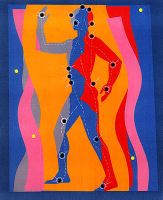 Updated guidelines for managing post-operative nausea and vomiting announced during the annual meeting of the American Society of Anesthesiologists include using acupuncture.
Updated guidelines for managing post-operative nausea and vomiting announced during the annual meeting of the American Society of Anesthesiologists include using acupuncture.
Here’s some supporting data.
Continue reading Guidelines to prevent nausea and vomiting include acupuncture
Chiropractic takes a beating
 Get ready, because the May issue of Self has a long and heart-wrenching account of a 43-year-old woman who had been seeing a chiropractor over 20 years to treat headaches and lower-back pain. Continue reading Chiropractic takes a beating
Get ready, because the May issue of Self has a long and heart-wrenching account of a 43-year-old woman who had been seeing a chiropractor over 20 years to treat headaches and lower-back pain. Continue reading Chiropractic takes a beating
Pushing back against CAM in Italy
 Italian physicians, led by former Health Minister, Prof. Umberto Veronesi from the Istituto Europeo di Oncologia di Milano, claim “these therapies risk depriving patients of effective cures, unlike modern medicine, which is based on centuries of science.”
Italian physicians, led by former Health Minister, Prof. Umberto Veronesi from the Istituto Europeo di Oncologia di Milano, claim “these therapies risk depriving patients of effective cures, unlike modern medicine, which is based on centuries of science.”
The doctors are particularly concerned about homeopathy, chiropractic, acupuncture, and herbal medicine as examples of “increasingly popular therapies whose usefulness is not certain.” Continue reading Pushing back against CAM in Italy
Consumer alert: Chinese herbal medicine Joy of Love is recalled

Exercise does not alter lesions in the brain of Alzheimer’s patients
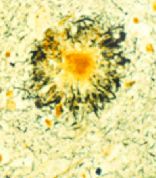
OK, but her research shows that physical activity has no effect on the rate of lesion progression in elderly people with Alzheimer’s disease or mild cognitive impairment. Continue reading Exercise does not alter lesions in the brain of Alzheimer’s patients
Trying to evaluate acupuncture to treat vascular dementia
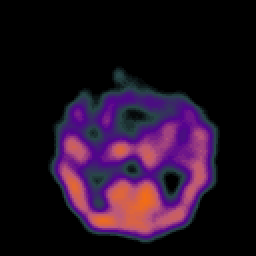 Vascular dementia is the second most common form of dementia after Alzheimer’s disease. The condition is preventable. Therefore, early detection and implementation of effective treatment are important.
Vascular dementia is the second most common form of dementia after Alzheimer’s disease. The condition is preventable. Therefore, early detection and implementation of effective treatment are important.
In order to assess the effect of acupuncture on this condition, a broad search for randomized, placebo-controlled studies testing acupuncture to treat vascular dementia was undertaken. Continue reading Trying to evaluate acupuncture to treat vascular dementia
Who is sick?
 Here is a website that tells you how many people in your neighborhood are as sick as you. Continue reading Who is sick?
Here is a website that tells you how many people in your neighborhood are as sick as you. Continue reading Who is sick?